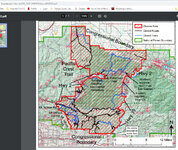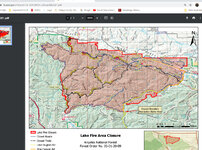Muley Buck
WKR
This is spot on! My sentiments exactly.Non-resident comment sent, didn´t have to register. Hoping for the best for CA. If this passes there, I have little doubt a similar attempt will be made in Oregon.
¨This proposal has no basis in the science of game management whatsoever. The black bear population of this state has doubled in the last four decades. Hunters have failed to meet the annual quota on black bears every year since its establishment. Black bear tag sales generate over one million dollars in revenue annually, all of which helps support California´s Dept. of Fish and Wildlife.
Hunters are without a doubt the largest source of funding for conservation in this country. Limiting hunter opportunity will inevitably lead to a reduction in hunter participation, and a subsequent loss of funding desperately needed to conserve habitat for our precious wildlife resources. This is a lose-lose proposition for both hunters and black bears in California.
It is also noteworthy that the hunting of black bears is not purely undertaken for ¨sport.¨ Black bear meat is a staple in many hunting households.
The language of this legislation implies that black bears face legitimate threats to their continued existence as a species. Not only is the black bear not considered threatened by the IUCN, California has the largest population of Ursus americanus in the contiguous United States.
The population of black bears in California in 1982 was estimated at around 15,000. Today the Dept. of Fish and Wildlife conservatively estimates their numbers at 30,000 to 40,000. This impressive population growth occurred despite liberal hunting seasons. This is hard proof that legal hunting in accordance with recommendations made by professional biologists poses no threat to the black bear. There is no suitable chunk of habitat in the state of California, from the Sierra Nevada to the Trinity Alps, capable of supporting a healthy bear population that lacks one.
How are voters supposed to trust that our representatives are making policy decisions rooted in sound science given proposals like this one, which flagrantly ignore hard data collected by our professional biologists?¨





